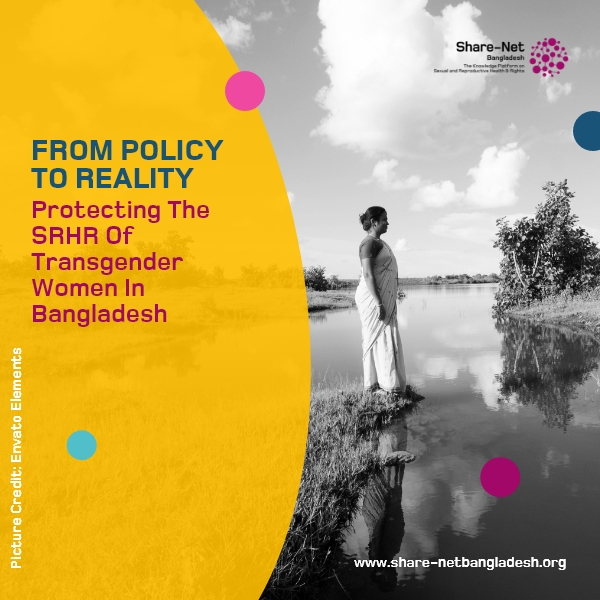From Policy to Reality: Protecting the SRHR of Transgender Women in Bangladesh
In Bangladesh, despite official recognition as a separate gender category, transgender women (known locally as hijra) continue to face systemic discrimination, with alarming implications for their sexual and reproductive health and rights (SRHR). Research shows that transphobia, embedded deeply in society, significantly impacts the physical and mental well-being of hijra, severely limiting their access to essential SRHR services.
A recent study seeks to delve into these pressing issues through a mixed-methods approach, combining quantitative and qualitative research to uncover the stark contrast between policy and reality. The study targets hijra communities in four service centers across Dhaka, aiming to document their SRHR-related challenges and formulate actionable policy recommendations.
The first phase of the study involves an extensive desk review, supplemented by quantitative data from a sample of 296 hijra individuals, using a first-come-first-serve approach. This will be enriched by in-depth interviews, focus groups, and key informant interviews, offering a comprehensive view of the lived experiences of transgender women. Particularly poignant life case histories will be highlighted, providing a human face to the data.
All findings will be analyzed through a policy analysis framework, a critical step in bridging the gap between what policies promise and the reality experienced by the hijra community. This analysis will result in a lay summary, distilling complex data into actionable insights that stakeholders can understand and act upon.
However, the study’s scope is not without its limitations. The multi-step research process is time-intensive, and the study’s impact is confined to policy recommendations, stopping short of designing specific interventions. Yet, the importance of this research cannot be overstated.
The results of this study will be shared widely, ensuring that the voices of the hijra community are heard in spaces where decisions are made. By disseminating findings through seminars, scientific articles, and detailed reports, the researchers aim to influence policy and practice at a national level.
In a country where transgender individuals often live on the fringes of society, this research underscores the urgent need for policies that truly protect their sexual and reproductive health and rights. Ensuring these rights is not just a legal obligation but a moral imperative that can significantly improve the quality of life for hijra people in Bangladesh.
Protecting the SRHR of transgender women isn’t just about health—it’s about upholding their basic human rights. The findings from this study could serve as a catalyst for change, pushing the government and society to take meaningful steps toward inclusivity and equity for all.
Source: National Library of Medicine

